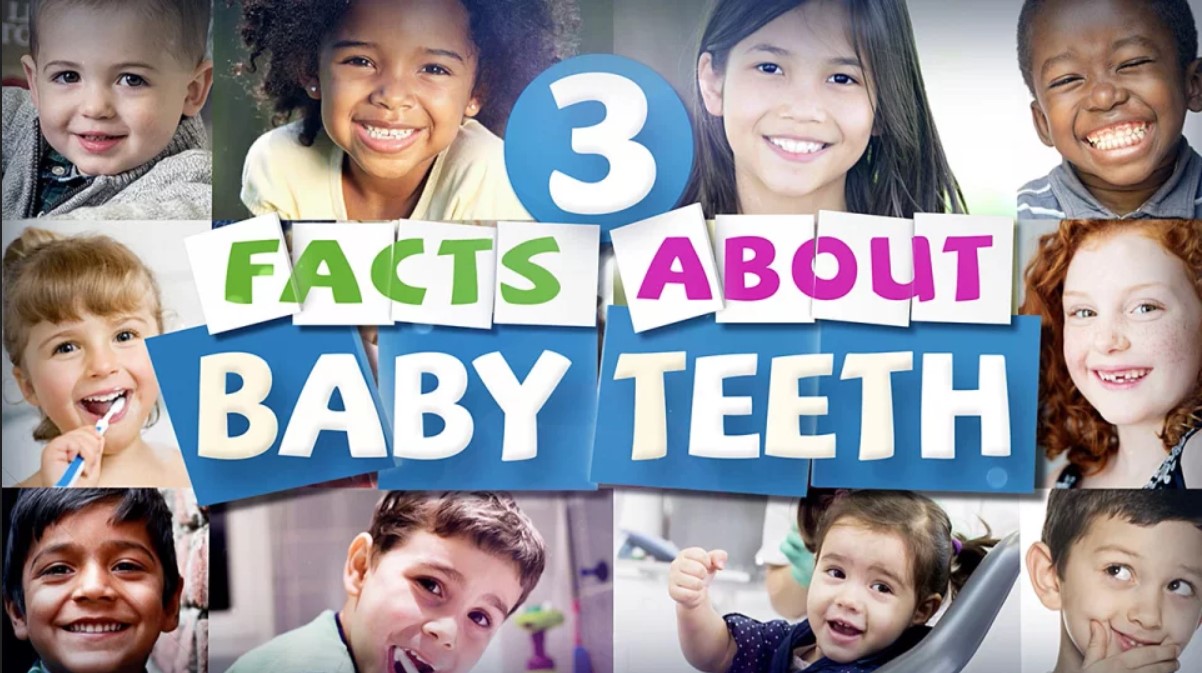3 Facts about Baby Teeth

Baby teeth are important. They help them talk, chew and smile.
In this article, we review 3 important things to know about your child’s first set of teeth;
Usually, baby teeth appear between 6 and 9 months
Babies begin to grow their first teeth between 6 and 9 months. But sometimes they come as soon as three months or delay up to a year. Two lower front teeth erupt first, followed by two upper ones. Most kids achieve a complete set of 20 primary teeth by 3 years of age.
However, your kid needs proper hygiene even before teeth grow as they begin to put hands and other objects in their mouth.
You may not know how to approach your baby’s dental care, especially if you are a first-time parent. Therefore, it is important to always consult your dentist.
Baby teeth need daily care as soon as they appear.
Just like adult teeth, baby teeth are vulnerable to tooth decay.
In fact, routinely nursing or putting your child to sleep with a bottle increases the chances of decay. This is because formula and breast milk consist of sugars that promote bacterial build-up when left in the baby’s mouth overnight. These bacteria feed on the enamel, which is the protective layer around your baby’s teeth.
Therefore, you should substitute milk with water once the baby’s teeth begin to show.
Water helps to harden the baby’s enamel as it mostly contains fluoride. Therefore, it is crucial that you visit a dentist to know whether your baby needs fluoride supplementing or not.
Nonetheless, you should clean your baby’s teeth daily to ensure bacteria have limited time to cause decay.
Tooth decay rate depends on how long sugars and carbohydrates stay in the mouth. It is advisable to also moderate the child’s consumption of sugary foods such as candies, cakes, and cookies.
Poor dental hygiene may cause discoloration, cavities, or even speech difficulty, as severe damage might lead to the removal of the baby’s teeth.
If you need guidance on cleaning the baby’s teeth, you can enquire from a dentist or hygienist.
Baby teeth are temporary, but they matter
At around 6 years old, your baby’s teeth will start to loosen as they are pushed outwards by permanent replacements.
However, none should come out until a permanent replacement has grown. This is because the first teeth guide the alignment of the permanent ones. But, they shouldn’t overstay as it may be an indication that the permanent teeth have grown in the wrong direction.
This is why you should visit a dentist between 6 months and 1 year after your child’s birth. If permanent teeth grow undesirably, they might affect the baby’s facial appearance, chewing, or speech.
Therefore, taking care of baby teeth is as important as caring for grown-up teeth.
Since baby teeth get replaced at different times, expect your child to have both primary and permanent types until 12 years at most. By then, they should have developed all types of teeth apart from molars, which erupt between the late teenage and early twenties.
Primary teeth are important throughout the baby’s exfoliation period as they will help the child speak, eat and smile comfortably.
Bottom Line
Maintaining your child’s dental health will go a long way in enhancing their quality of life.
If you have doubts at any point, always feel free to enquire from your dentist.



